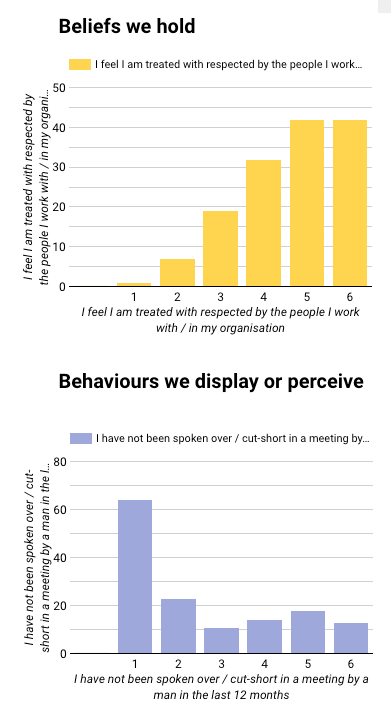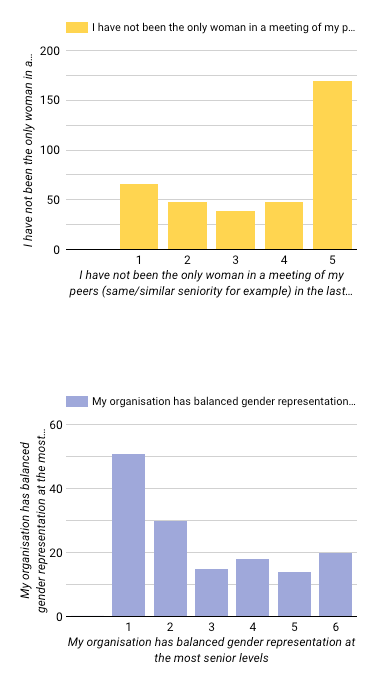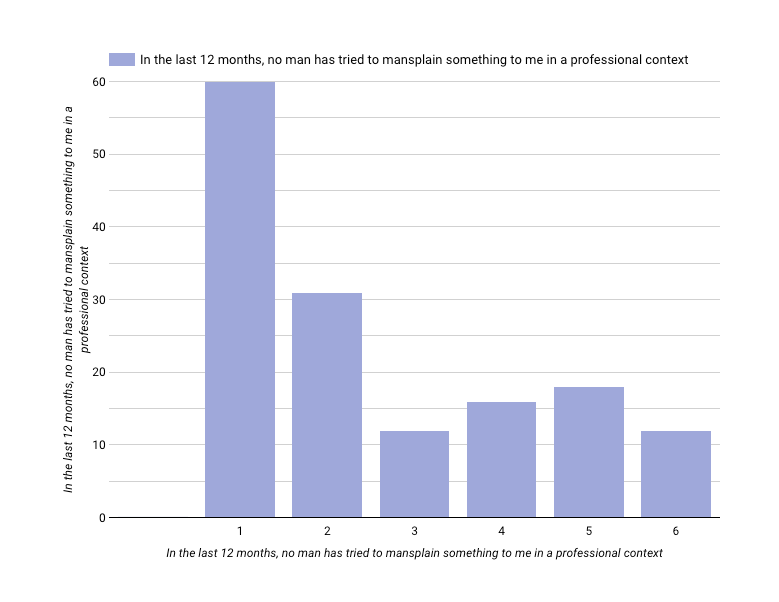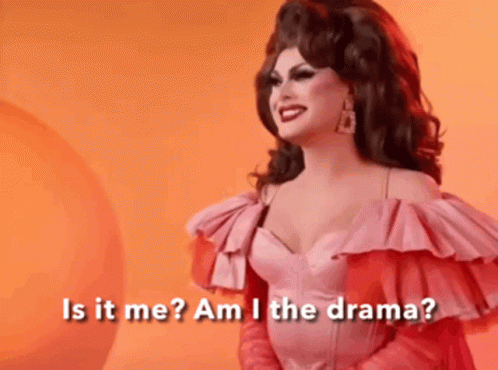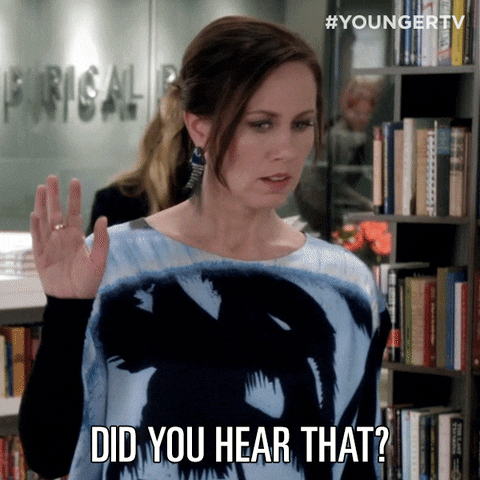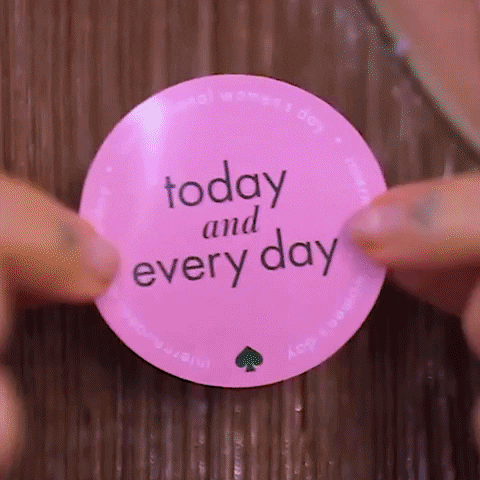A week before International Women’s Day 2023, I asked working women1 to answer a few questions. I wanted to understand how working women themselves feel about the professional spaces we occupy today, and what their feelings toward IWD and the progress we’ve made as women are.
More than 150 women took part, and the results tell a curious story.
TL;DR —
Women are in a toxic relationship with ourselves. Our beliefs and perceptions do not always add up; so much more to uncover on why that might be.
We feel (read: know, for a fact) that men are still paid more for doing the same work.
70% of women have been spoken over or cut short by a man in a recent meeting
65% of us do not see balanced gender representation at the most senior levels
40% of us have been the only female in a meeting of our peers at work in the last 12 months
Around 60% of us are negotiating our pay packages [but we know that we could get that figure to 100% and the impact on the gender pay gap would likely still be negligible because the system itself is broken]
For the 40% who aren’t negotiating, it’s because they trust the system we’re in to pay us right, or they lack the confidence data or tools to make the ask.
We’re IWDoing it completely wrong. The founding women of IWD intended better for us.
It is mid-April, and with radio silence from me on this topic last year, you might have thought I was giving up on my now annual tradition (see 2020, 2021) of having-some-stuff-to-say about IWD. Absolutely not.
Every IWD, there is a barrage of words plastered everywhere, containing personal stories, statistics, (usually) men going to great pains to highlight women they know (how I feel about that as a practice is perhaps for another post entirely..) and then some. IWD appears to have widely come to be considered a day of performing a celebration of women in people’s lives. How this manifests though, has always had me on edge: a density of voices comprising of those surrounding women (often, but not always, men), quite often projecting onto women in a kind but clumsy way - rather than amplifying the voices of the women themselves.
While it is nice for people to spend time considering and highlighting the achievements of women, openly showing gratitude and appreciation for them, it being so centred around one day a year and driven by a performative cause, manifesting in a performative way, (‘✅ posted on LinkedIn, I consider myself an ally to women now for the rest of 2023’) not to mention it being not the purpose of IWD, is hard for me to look away from.
That’s without me launching into a monologue about how that kind of public praise and validation being showered upon women in this way risks deepening the self-perpetuating circle of self-doubting, system-pleasing misery women swirl around in most of the time anyway. I knew I was terrifyingly competent before you plastered it across social media. My subsequent success and confidence is all mine. Tyvm.
IWD is like a car crash. And this year, instead of speeding past the mess keen not to contribute to the carnage, I instead slowed right down and stared at it for a bit. Much like a number of other women appear to be doing with growing anger, and I’m loving that for us.
The survey results tell a story
First of all, don’t take my word for it..
If you prefer to dig around and draw your own conclusions, I’m not gatekeeping anything:
You can take a look at the original survey here.
You can take a look at a breakdown and cross-filter/play around with the results data in Looker studios here.
If you’d like a .csv of the google survey responses to analyse or dig into yourself, please message me your email and I can send it over. Everything was collected anonymously.
Would you like my interpretation of the data? Doesn’t matter, here it is anyway.
Reminder of the rating scale: 1 = Strongly Disagree with the statement, and 6 = Strongly Agree.
The key things I took away when looking at the responses was, that as of IWD 2023:
We as women are basically in a toxic relationship with ourselves. What we say we believe about our organisations, colleagues and/or treatment at work often does not align with the accompanying behaviours we actually perceive.
40% of women have not / do not negotiate their pay. There are clear patterns as to why those women say they do not negotiate their pay; looking at those reasons, the onus has to be on companies to do better, not on these women.
We’re IWDoing it completely wrong. The founding women of IWD intended better for us.
Let’s dig into that toxic relationship status..
If you take a look at the Looker dashboard linked above, pages 3 and 4 are set out to show the outputs of graphs in twos (stacked).
Let’s take a look at how each yellow graph interacts with the purple one beneath it. Starting with the first one on the far left, page 3:
I feel I am treated with respect by the people I work with / in my organisation.
Average rating across the sample is 4.6/6 (=Strongly Agree).
Median = 5
Weighted heavily toward agreement in the distribution. I have not been spoken over/cut-short in a meeting by a man in the last 12 months.
Average rating across the sample is 2.5/6 (= Strongly Disagree).
Median = 2
Weighted heavily toward disagreement in the distribution. Alright, hold up.
We overwhelmingly state at the outset of the survey that we feel treated with respect, but we then fairly unanimously nodded our heads to confirm that the majority of us indeed have been spoken over or cut short in a meeting by a man in the last 12 months.
Am I working to a different definition of respect? Or are you lot saying you like being cut off and spoken over.. ? Someone initiate me. I am not in the club r/n.
Let’s try another one.
I have not been the only woman in a meeting of my peers (same/similar seniority) in the last 12 months. Weighted heavily toward agreement in the distribution.
vs
My organisation has balanced gender representation at the most senior levels. Weighted heavily toward disagreement in the distribution.
The visual of these stacked graphs is interesting. In reality, the averages across both hover between 2.5-3, and the median for both statements is 2. The fun lies in how those responses are weighted either end of the spectrum.
Looking at the distribution of responses, we can see that we strongly agree that we’ve not been the only woman in a room of peers, while we also immediately go on to disagree that our organisations have balanced gender representation at the most senior levels.
Now, unless not a single respondent to the survey was in a senior position, which I know isn’t the case based on the engagement I’ve received from many who took the survey, something is fishy about these results. At best, it tells us that there was at least one other woman in the room for the meeting in which you were not the only woman, but that we have a long way to go for it to reach any form of balance. Yikes. Let’s not even begin to unpick what this means about the number of women working in IC-level jobs vs representing in senior roles with a voice at the table (and the pay inequity that comes with that balance). Double yikes.
Okay, one more before I dive deeper into pay…
At first blush, this looks promising. Some graphs that visually align to suggest that women broadly agreed more than they disagreed with both statements. But of course, it is not that simple.
I have not felt treated differently for being a woman by those I work with in the last 12 months. Average rating = 3.3 Median = 3 Weighted heavily toward agreement in the distribution.
vs
I suspect that women in my organisation and/or line of work are generally paid less than male counterparts performing similar work or who hold similar levels of responsibility ('same work'). Average rating = 3.9
Median = 4
Weighted neutrally, with slight lean to agreement in the distribution. Again, the averages are tricking us into a false sense of security because they suggest we’re eye-twitchingly neutral on the top statement, and in lukewarm agreement with the bottom statement.
But if we look at how the scores are distributed, it looks like there is relatively healthy agreement with the top statement (we feel treated equally regardless of gender), and more agreement than disagreement with the bottom statement (… 70%2 of women reckon men are paid more for the same work in their org or industry).
How can we feel treated equally when we seem to agree on the belief that men are paid more for the same work?
Now, admittedly, I say that with clear dagger in my tone, because of course we know from consistent and wide-ranging pay data that the gender pay gap remains at the same level it has for the last 20 years and on average women have to work 15 months to earn what men do in 12 (this increases dramatically for women who are not white, and when you add any type of intersectionality into the equation).
So we know for a fact we’re not paid equally to men in the same work (and haven’t, for 20 years), and yet here we are, overwhelmingly saying we feel we’re ‘treated no differently’ for being a woman in our organisations. Go home data, you’re drunk.
I don’t know about you, but I consider how I am paid to be a pretty large part of how I am treated by any organisation, and until I am paid at least equally I wouldn’t consider myself treated fairly.
I wonder to what extent women are just so used to being paid less, that we accept it as part of the status quo and we’re judging ‘equal treatment’ by a standard exclusive of pay? I suspect there’s a wealth of learning to uncover here to understand what women are thinking of when they say they believe they’re treated equally.
Take a poke around the full Looker dashboard, and filter (some graphs repeat on diff. pages to allow for cross-filtering analysis). It’s fascinating how much we seem to contradict ourselves in what we seem to want to believe about our working environment and conditions, and what we say we actually perceive them to be.
The silence screams so loud
A fun graph to end this section: most of us have had a man mansplain something to us in the last 12 months (see below).
What a graph … the 1s column is bursting at the seams with the collective force of eye-rolls powering it.
For my next trick: asking women how they respond when a man starts mansplaining something. No, really: my inbox is open. I’m here to add to my toolkit.
How do women feel about pay?
Only one question in the survey collected free-text responses. For those who confirmed that they did not negotiate their last pay package (whether new job offer, or internal pay review), I asked them to explain briefly why they didn’t. I’ve gone through those responses to do some sentiment analysis and pick out some trends.
It’s important to say explicitly: there is no judgment of women who choose not to negotiate. You are not lesser, you are not weaker than anyone else and this is not a skill you ‘should have’ or ‘must work on’. You live in a system that is systematically and deliberately failing you and tripping you up, so while you can tool-up (if you want to), it’ll only get us so far anyway.
We could all be negotiating at top capacity every time, and we’d still be unlikely to see pay equality because the system is not looking for our assertiveness; it’s looking for our compliance. More on that in a moment.
Sentiment/trends in the free text responses
Not every response is included in this summary section. See page 6 of the Looker dashboard for the full set of free-text responses.
The data said:
60% of respondent's negotiated their pay package
40% either did not (or tried but met an early roadblock).
Based on the free text responses, it looks like the reasons those respondents chose not to negotiate their pay package (any further) fall into five categories:
Trust or satisfaction.
Trusting or believing that the offer was already fair or reasonable relative to their current situation / industry, and/or met what they had asked for.
Sample of responses:
felt it was fair
they met my expectations
I was happy with the pay
package was strong
Was on a very low salary and the new salary seemed fair
Offer was fair - I suggested the figure and they gave me what I proposed
I was introduced by a recruiter and the amount they offered was the amount I told the recruiter I was after
I believed it was reasonable pay - they were transparent about the pay of the rest of the company employees
Explicit positioning by company.
Offer communicated as non-negotiable or not framed as negotiable by representative of the company or recruiter working for the company.Sample of responses:
didn't give me the option [to negotiate]
was told it was non-negotiable
I was told this was what they could offer me and couldn't flex higher
Tried but female in house recruiter was hardline / inflexible
It was presented as fixed and non-negotiable
Fear of adverse consequences or negative perception.
Belief that there could be adverse consequences or a negative perception of them as a person if they attempt to negotiate the salary on offer.
Sample of responses:Worried offer would be pulled if I negotiated too hard
I was pregnant and felt vulnerable
Fear of offer being rescinded
Didn't know how well it would go down
As a woman I didn't want to appear 'greedy' when asking for more money - weird I know!
Lack of confidence, data, experience or tools.
Lack of confidence or experience, either in their worth or with the actual negotiation conversation itself. Didn't know it could be negotiated, lacked reliable data on what to negotiate for, or believed it wouldn't be negotiable.
Sample of responses:I had no idea it was an option, I was just happy with the pay offer and didn't think I had the bargaining power to push for more
Didn’t know how much i could ask for
Didn't feel like that was an option
Awkwardness, lack of confidence around what I'm 'worth' in the role, i.e. lack of confidence that I have the right experience & skills to justify a higher pay package, feel I have to take what's offered & show my worth in the role hoping that it's recognised and rewarded from there...
I didn't know better!
lack of confidence around what I'm 'worth'
confidence [multiple responses with just this word]
Wasn't sure how to frame the conversation
It's my first part-time role after having just started a family and I felt lucky to be offered a job (!).
It is definitely an area - that no matter how senior I have got, I truly struggle with. I am not always confident in myself, and that comes across in these moments
Didn't feel I was worthy of any more pay, as this would have been offered to me
Confidence/not knowing how to
Side note: my heart aches reading these responses in particular, and I’ll sit down and separately write up a few basics on what to do / not do in a salary negotiation for anyone starting from zero who wants a starting point. First of all, never answer the question 'What are your salary expectations?' or 'What are you currently earning?' 🫠
External factors or company-set limitations.
Company or market conditions and limitations are respected at face value.
Sample of responses:This was in a time of budget constraints, for which I had context, so it did not feel appropriate to ask for more
They said it was already above the limit
The salary offered was already over the budget for the role and I didn't believe there to be any room for manoeuvre
It was a promotion so I guess it had a standard grade
I was offered less than the originally quoted salary, when I challenged this they said it was to align internally, so I felt bad for pushing. Now I regret it.
The majority of responses fall into either category 1 (Trust / satisfaction), or 4 (Lack of confidence, data, experience or tools). A number were told it was non-negotiable. This is consistent with external studies on the subject of pay negotiation by women (see end of this post for references).
Better or more negotiation is not the answer.
It is so tempting to say: Well, this explains the gender pay gap.. women aren’t asking! That’s just not correct.
Both the number of women who do vs don’t negotiate, as well as the the patterns of why folks didn't negotiate in this data set are consistent with externally available data on the subject (see end of article for refs and links). I'm sure there is a lot to be read and even more to be studied on the topic and this isn’t an academic piece of work by any stretch, but I share below the headlines of my reading out of interest. Feel free to skip if you’re not fussed (rly tho?).
Let’s start with some data..
In 2022 the difference between average hourly earnings for men and women in the United Kingdom for all workers was 14.9 percent, compared with 8.3 percent for full-time workers, and -2.8 percent for part-time workers. This does not take account of differences in intersectionality; non-white women earn significantly less than men. I refer specifically to the UK data here, because 85% of the data collected in my survey was from working women in the UK. See Looker dashboard page 2 for the full breakdown of participant demogs.
I am deeply interested in why the gender pay gap has not shifted in over 20 years. It baffles me. In so many areas we’ve made unbelievable progress - we have gone from dial-up and MMS messaging (which, btw, was first introduced in 2002…21 years ago), to stable wifi on aeroplanes and the Tube and the existence of TikTok, but we can’t sort out a system that consistently pays women ~15% less than male comparators? Nah. This is rigged.
Now, I’m also not drinking the Sheryl Sandberg flavoured Kool-aid that would have us all believe we simply have to Lean In, be more confident and be go-getters, to receive the equitable treatment and pay we should never have had to lean in to get. That ignores all the ways in which women often naturally show up that men don’t or can’t, and has us working double-time to be both ourselves, and then some, just to reach the starting line. I find that completely unacceptable as a starting point.
So I looked at the free-text results in conjunction with some externally available data on the subject to see whether together they confirm my sneaking suspicion that Sheryl’s gospel is bullshit: is women negotiating harder, being better at it, or just speaking up at all the answer to gender pay equity?
Spoiler alert: it isn’t. It’s a decoy. A clever one; but a decoy. It’s the system that receives our requests that keeps pushing our heads underwater.
We know there is evidence that suggests that women are less likely to negotiate their pay package in the workplace than men. This gap widens even further when you add intersectional demographics.
Several studies have found that women are more hesitant to negotiate and are less likely to ask for a higher salary or better benefits during the job offer process. For example, a study published in the Journal of Applied Psychology found that women are less likely to negotiate their salaries than men, even when they have the same level of qualifications and experience as their male counterparts. Another study found this balance could be somewhat neutralised by explicitly stating in the job advert that the salary is ‘negotiable’ (i.e. women seek permission to negotiate, men do it anyway).
Research also suggests that women who do negotiate their pay may face negative consequences, such as being perceived as pushy or aggressive, which can impact their career advancement opportunities.
HBR published an article in 2014 linking to a series of studies conducted that find that it isn’t that women are not confident or unwilling to negotiate - they are - but their reticence to actually go ahead and ask for better pay is down to how they’re treated when they do ask.
So the message to women is consistently: the way to solve the gender pay gap is to be more confident, ask for what you’re worth, negotiate better. Men can’t be judged for doing it, if you’re not willing to, right? Nah, wrong. Because when women do ask, we’re punished for it in the form of the social cost we incur in doing so. In most published studies, the social cost of negotiating for pay is not significant for men, while it is significant for women.
In this dashboard, 60% of respondents did negotiate their salary, so it's important to note that the gender pay gap cannot be explained (entirely, or even primarily) by differences in negotiation behaviour; women are negotiating.
Structural and systemic factors play a far more significant role in generating and maintaining that gap, and women should not merely 'lean in' or 'do better'.
This is a system level problem. Stop telling us to ask for more if we want to be paid right, it’s not effing working.
On the whole, the survey tells this story:
Women are in a toxic relationship with ourselves. Our beliefs and perceptions do not always add up; so much more to uncover on why that might be.
We feel (read: know, for a fact) that men are still paid more for doing the same work.
70% of women have been spoken over or cut short by a man in a recent meeting
65% of us do not see balanced gender representation at the most senior levels
40% of us have been the only female in a meeting of our peers at work in the last 12 months
Around 60% of us are negotiating our pay packages [but we know that we could get that figure to 100% and the impact on the gender pay gap would likely still be negligible because the system itself is broken]
For the 40% who aren’t negotiating, it’s because they trust the system we’re in to pay us right, or they lack the confidence data or tools to make the ask.
What is going on here?
Okay, it is flippant gif. But we are at least one of the villains in our own stories here. Fixing that starts with acknowledging it.
We’re doing IWD wrong, and we’re permitting it to be done wrong. If IWD and the results of this survey are a rough proxy for how we show up for ourselves (and each other) day to day in the workplaces we occupy all year round, it’s a disheartening one.
There is so much working against women in the systems, structures, and places we occupy, that being completely honest with ourselves and each other on the state of those systems and structures - and demanding better, constantly - is the least we can do for ourselves if we want them to be improved.
I am going to stress the deliberate use of passive phrasing here: to be improved.
I am absolutely not saying we’re the makers of this destiny and are to blame; hell no. Nor are we primarily responsible for fixing this sordid mess. Not least because our sphere of influence as women is shrinking, not growing: women now lead only 12 governments among the 193 member states of the United Nations. That’s 6%.
The world has lost five of its longer term women heads of government in just over a year; all replaced with men. You can google the state of gender representation in corporate circles yourself - but we all know what it says already.
The number of women in leadership roles worldwide is a key metric that shows progress towards gender equality, and in the context of this article, it’s hard not to acknowledge this already small puddle of power drying up rapidly.
To me, that only serves to heighten the level of responsibility we each hold for not entrenching these systems that do not serve us, defending them, enabling them, or ignoring them so that they can fester unchallenged in their own rotten delight.
A sidenote here, that I’m not some ‘angry feminist’ that believes men are the enemy (although I am both a feminist, and pretty angry?). They really aren’t. But unfortunately, the systems we operate in that are failing us so dramatically are primarily attributable to male architects, and as above, shepherded and controlled overwhelmingly by men in every sphere of influence that matters, right up to present day.
So before anyone ‘not every man’s me here… sure. But even the most effective male allies live in a system that is built for, and benefits them, and the job here isn’t to spare the feelings of the odd man that overcomes the high threshold of being a true ally - but to point out that the systems men built, control and uphold today, are still failing us. If a man happens to be in a position of influence, and is able and willing to use it to change those systems, heck yeah, come sit right down over here. But for men doing ostensibly nothing at all and believing that makes them ‘not every man..’ - silence is violence, and inaction is still an action.
As women, we can each act on the responsibility we have by being vigilant about how we perceive and talk about the state of things, with each other, and publicly. Not sugar coating, downplaying or distorting to ourselves/each other, being avoidant of it (even if it’s so so tempting, because the alternative is really very depressing) … or even settling for something because it’s better than nothing (or better than the thing we actually need). Speak up. Be honest about how we feel. Make that man you work with uncomfortable; trust me, they’ll be fine.
I look forward to re-running this survey in 2024, and seeing if what we believe and what we see happening is stacking up more (or less).
Anyway, my point is: we’re IWDoing it wrong.
I refuse to be grateful for IWD in it’s current conception, and the pseudo feminist fanfare that accompanies it, and really… so should you.
As it stands, that day isn’t for us, it doesn’t serve us, and it doesn’t advance us or care for what we need. Please see survey confusion above - we don’t even know what we feel or need anymore, at least, not consistently.
IWD has lost itself in LinkedIn posts, catered company lunches and tortured statistics pointing out how much better we have it now, than in the 1940s (do we?).
When I started the survey for the 2023 IWD counter-offensive, I looked up the origins of IWD again. From the IWD website:
“1908
Great unrest and critical debate was occurring amongst women. Women's oppression and inequality was spurring women to become more vocal and active in campaigning for change. Then in 1908, 15,000 women marched through New York City demanding shorter hours, better pay and voting rights.”
A woman named Clara Zetkin then tabled the idea of an International Women's Day, proposing that every year in every country there should be a celebration on the same day - a Women's Day - to press for their demands.
IWD began as a day for women to get together en masse and demand improvements in their working conditions, including women’s “rights to work, vote, be trained, to hold public office and end discrimination.”
Not a day of appreciation of women by other people; the day of demands by women themselves. Ffs, I cannot say that often enough. The volume and distribution of voices every IWD is all wrong.
It has been 115 years, and we’re still constantly struggling with pretty much the same topics that spurned 15,000 women in New York City into action in 1908.
The cynical part of me is tempted to suggest that the current manifestation of IWD is the product of men taking back control of a day created by women that they couldn’t eliminate, so instead, they manipulated it and changed the narrative of the day: a day for others to use their voices to loudly praise and validate women in their lives, (mostly) without asking what we feel or need to improve our experience of the world; because aren’t we just grateful to be seen? Let it be so loud, so dense, and so celebratory so as to drown out any mention of demands or complaint, and let us say that those of us who raise challenge to it ‘tear women down’ and are difficult, ungrateful women. 🫠 Again.. see above re ‘not all men’.
Now, let’s be honest with ourselves. We are some of the reason we can’t have nice things.
To meaningfully contribute to improving the state of existence for working women, it is necessary to consistently and firmly hold to account those who now control those systems (see above; factually, that is by majority men today). That requires us to be horribly honest - including with ourselves - about what outcomes those systems are producing, whether they serve us, and if not, using our voices and actions to speak out about what we actually want, and not be sidetracked by a bit of praise and validation once a year.
Keep the praise, give me equal pay.
Anyway.
Happy IWD. 🎉
Ps: Not sorry this is a month and a bit ‘late’. I reckon everyday is a day to demand better.
Talk to me.
I like talking to and meeting outspoken women who care about this topic, and I very much want to be part of positive action that changes the world for us. Feel free to message me on LinkedIn3 if you’re someone who feels the same way; I think we’d get along.
Similarly, I love being told (by anyone) when I am wrong, and what I am wrong about, or being challenged on my personal opinions (which really are, just that) - it means +1 person is thinking/talking about this. I don’t tend to respond to aggressive misogyny, but one would hope you didn’t get this far if that describes your approach to life. ;)
References and Footnotes:
UK Gender Pay Gap in 2022:
- https://www.statista.com/statistics/280710/uk-gender-pay-gap/
- https://commonslibrary.parliament.uk/research-briefings/sn07068/#:~:text=How%20big%20is%20the%20gender,(figures%20exclude%20overtime%20pay).
Studies referred to:
Bowles, H., Babcock, L., & Lai, L. (2007). Social incentives for gender differences in the propensity to initiate negotiations: Sometimes it does hurt to ask. Organizational behavior and human decision processes, 103(1), 84-103. https://www.sciencedirect.com/science/article/pii/S074959780600105X
Gelfand, M. J., Nishii, L. H., Raver, J. L., & Schneider, B. (2008). Discrimination in organizations: An organizational-level systems perspective. Academy of Management Review, 33(1), 89-109. https://journals.aom.org/doi/abs/10.5465/amr.2008.27745097
Bowles, H. R., Babcock, L., & McGinn, K. L. (2005). Constraints and triggers: Situational mechanics of gender in negotiation. Journal of personality and social psychology, 89(6), 951–965. https://doi.org/10.1037/0022-3514.89.6.951
Bowles, H. R., Babcock, L., & Lai, L. (2018). The impact of organizational policies and practices on negotiations by women. Negotiation Journal, 34(4), 333-350. https://onlinelibrary.wiley.com/doi/abs/10.1111/nejo.12261
Kleven, H. J., Landais, C., & Søgaard, J. E. (2018). Children and gender inequality: Evidence from Denmark. The Quarterly Journal of Economics, 133(2), 1095-1151. https://doi.org/10.1093/qje/qjy001
Major, B., & Konar, E. (2019). Gender, Power, and Negotiation: A Process Model and Research Agenda. Current Opinion in Psychology, 32, 117-121. https://doi.org/10.1016/j.copsyc.2019.05.009
Bowles, H. R., Babcock, L., & Lai, L. (2019). Negotiating more for others? Why women negotiators achieve better outcomes when negotiating for others than themselves. Journal of Applied Psychology, 104(8), 1077-1095. https://doi.org/10.1037/apl0000405
Why Women Don't Negotiate their Job Offers, HBR: https://hbr.org/2014/06/why-women-dont-negotiate-their-job-offers
References to women and/or females in this article are to those who identify as women or as female today whether by birth or otherwise, and are in this article specifically to those who consider themselves to be part of the workforce at this time (incl. those on maternity leave, sabbatical or other temporary hiatus).
I’d like to speak to the women who strongly disagreed with the bottom statement btw - where do you work? Can I have a job? Anyway, getting side-tracked…
If you send me a connection request, please include a note :) I see LinkedIn as a quality not quantity game.





